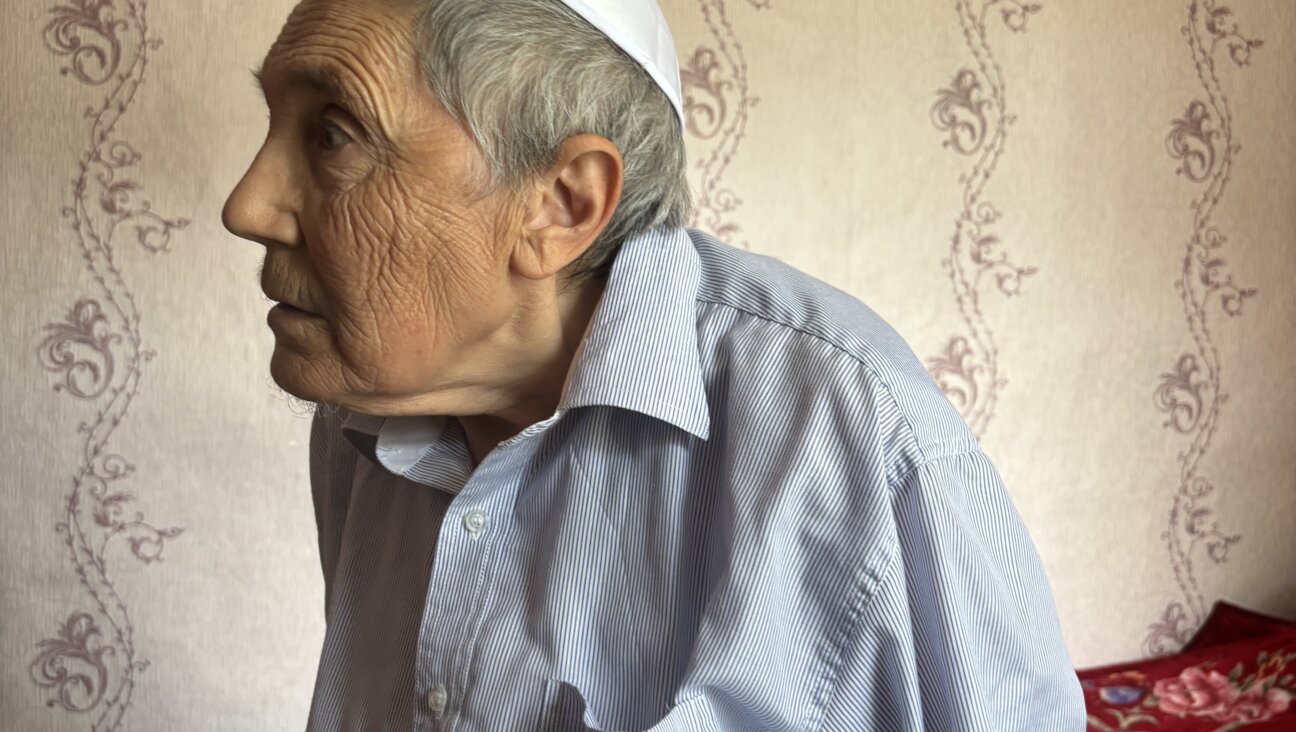Israeli soldiers are singing it in Gaza, and American Jews in shul: A Jewish song takes flight in crisis
How ‘Acheinu’ became a post-Oct. 7 rallying cry

A person holds a sign reading “Bring them home now” during the March For Israel on the National Mall Nov. 14. Photo by Noam Galai/Getty Images
In a dimly lit room somewhere in Khan Younis in Gaza, the soldiers laid their rifles down and sang.
The tune — somber, then climbing — was familiar. The words, centuries old but newly significant, articulated the soldiers’ sense of peril — and their hope.
The prayer that's been on the lips of the Jewish people since October 7, is sung by our brave soldiers at a kumzitz in Khan Younis, Gaza.
— Frum TikTok (@FrumTikTok) January 3, 2024
Source: @MKYstatus. pic.twitter.com/EgkjXwDIka
They were singing “Acheinu” — a song you’ve probably heard even if you don’t know it. And IDF soldiers stationed in Gaza are hardly the only ones taking it up. Since Oct. 7, it has become something of a religious anthem for the Jewish world. Synagogues across the United States have added the tune to prayer services. It is a fixture at pro-Israel demonstrations. Thousands have swayed to it during prayers at the Western Wall.
Abie Rotenberg, the Orthodox Jewish musician who wrote “Acheinu” some 35 years ago, doesn’t remember what exactly prompted him to sit down at the piano that day.
“Something must have been going on,” Rotenberg said. “Whether it was something going on in Israel, or in my community, or somebody who was sick or in danger, I remember being in a vulnerable state of mind.”
Rotenberg, who lives in Toronto, selected a passage from liturgy that fit his mood and set it to music in about an hour. It became the second track on his album, which was released shortly before the Gulf War. Rotenberg says he noticed it gaining popularity as people in Israel were buying gas masks, fearing chemical weapons attacks.
The song’s lyrics are built around 36 Hebrew words that ask God to save Jews in danger and captivity. They feel contemporary, but date back a full millennium:
Our brothers, the whole house of Israel, who are given over to trouble or captivity, whether they abide on the sea or on land
May God have mercy upon them, and bring them forth from trouble to enlargement, from darkness to light, and from subjection to redemption, now speedily and at a near time.
According to Rabbi Elie Kaunfer, chief executive of the Hadar Institute, the prayer “Acheinu” first appeared in a 12th-century French prayer book compiled by a student of Rashi.
But the passage could be older than that, and may not even originate in France. Kaunfer said “Acheinu” is also found in a prayer book that dates to the ninth century, but whose oldest known copy dates only to the 1400s.
It was deployed in crisis long before the tune we know today was attached to it. Jews in 1938 Hamburg wrote their own prayer for captives after Kristallnacht, Kaunfer says, but they accompanied it with a standard: “Acheinu.”
“Jews have been being held captive throughout Jewish history,” Kaunfer said in an interview. “So there’s probably a lot of contexts to choose from.”
Today, the prayer — sans music — is read in Ashkenazi and Sephardic services alike as the Torah is put away on weekdays. And since the war began, many have made singing Rotenberg’s version a part of their regular observance.
At Congregation B’nai David-Judea, an Orthodox synagogue in Los Angeles, Rotenberg’s “Acheinu” is often sung before the Torah is put away on Shabbat.
Rabbi Yosef Kanefsky, the synagogue’s spiritual leader, said he chose it because it references the hostages directly, and musically, its soulful climax “packs a punch.”
But there was also a simpler reason, Kanefsky said: “People really know it.”
Still, Rotenberg has mixed feelings about the song’s wartime resonance.
“I’m pleased that I wrote a song that gives people comfort,” he said. “And at the same time, it’s sad that we are going through a period of time where there are hostages and people suffering, and soldiers putting their lives on the line. I hope for better days when some other song I’ve written, with a happier theme, could be sung.”






















